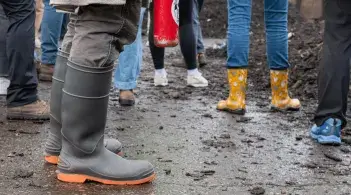Current Funding Opportunities
Undergraduate Research Fellows
The Food Systems Research Institute is proud to fund talented undergraduate students to gain hands-on experience working closely with UVM researchers to study impactful and pressing food systems issues relevant to Vermont. Their research encompasses the diversity of food systems research, spanning from pest control to food safety, and from the intricacies of diet culture to the significance of cover crops.
- Awards include a $4,500 stipend and up to $1,500 in research expenses.
- Students can apply through UVM FOUR – there is a common application, a budget worksheet, and faculty sponsor form,
- The deadline to apply is March 2nd for the following summer.
Learn more and see videos of previous projects.
Open Access Fund
The Food Systems Research Institute (FSRI) is providing funding to maximize our scientific impact through open access publication charges, allowing the research results from FSRI work to be publicly available.
Eligibility and Conditions:
- Previously or currently funded FSRI projects and people are eligible. Applicants must be currently employed by UVM.
- Open access charges will be available for fully open access journals (i.e. where the entire journal is open access). An exemption may be requested for open access charge for hybrid journals, but require additional information (see below).
- The FSRI will fund a maximum amount of three thousand dollars ($3,000) per request. An individual cannot request more than six thousand dollars ($6,000) total from the fund, as first or corresponding author.
- Any funding received should be acknowledged in the funding section of your publication. This information will be provided to you if your publication is funded.
- All funding is first come/first serve until the funds have been fully expended.
You will answer the following questions in the application. Please review the information needed to answer the questions prior to applying.
1. Name of author(s)
2. Publication title
3. Journal and journal website indicating the open access nature of the journal.
- Hybrid exception: If the journal is not gold open access (i.e. hybrid), please also submit a statement indicating why publication in this journal is necessary, instead of a fully open access journal.
4. Which FSRI funded project or initiative is this publication affiliated with?
5. Have you previously requested funding? If Yes, how much?
6. Once the journal is published to the site, please provide a link to that journal for our records.

